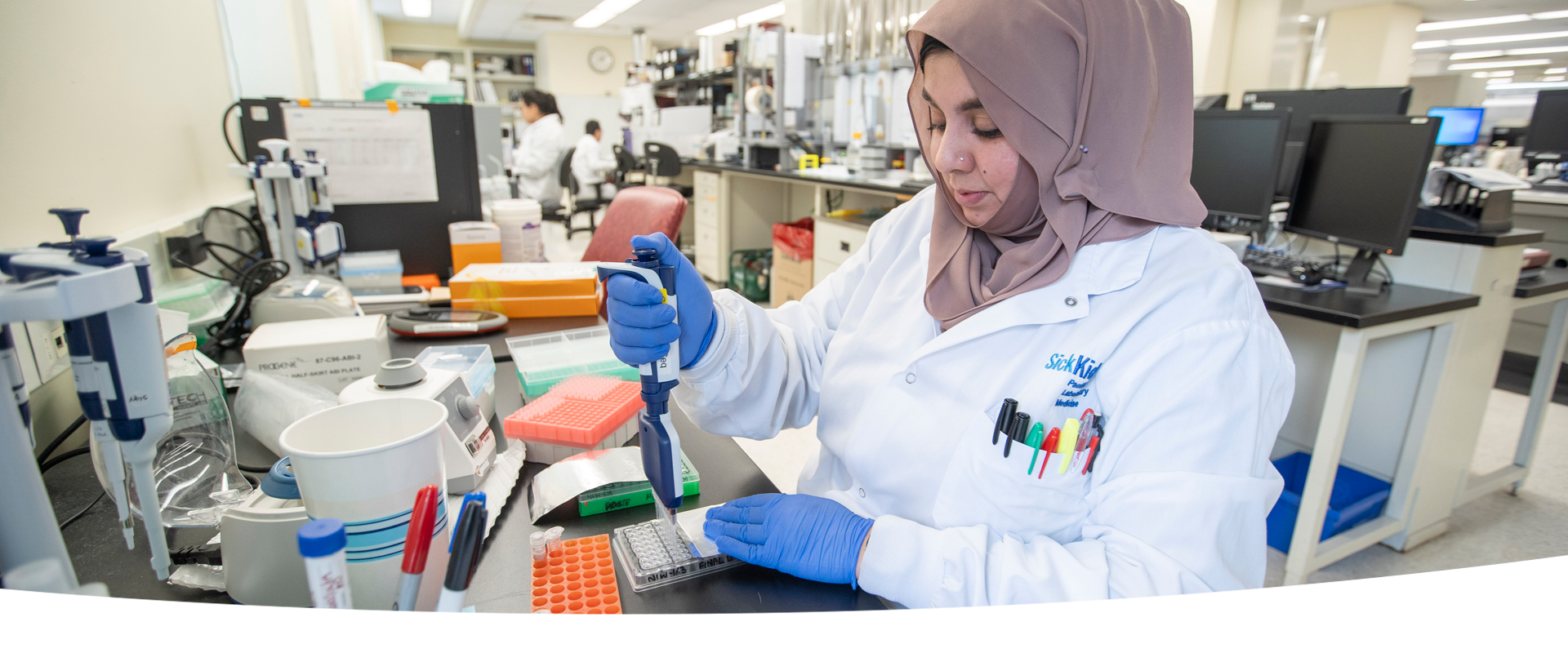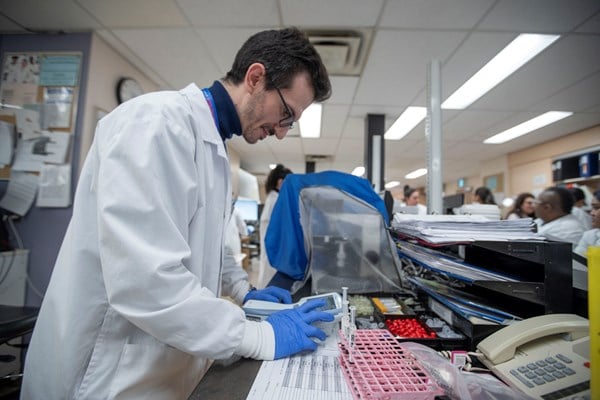
Genome Diagnostics
The Division of Genome Diagnostics specializes in genetic testing for rare hereditary disorders affecting the paediatric population. The Division includes the Cytogenetic Laboratory, Molecular Genetics Laboratory, Microarray and a Clinical Fibroblast Service.
Division Head
Labs & services
Genome Diagnostics
The Genome Diagnostics Laboratory offers clinical genetic testing for rare genetic conditions, with a focus on those that affect the paediatric population. We are staffed by professionally trained and certified molecular geneticists, genetic counsellors, molecular technologists, as well as genome analysts, bioinformaticians and technicians.
The laboratory offers several test services including:
- disease-specific assays
- targeted testing for familial variants
- targeted panels for recurrent disease-causing variants
- multi-gene panels
- genome-wide sequencing*
*The Genome Diagnostics Laboratory is a partner in Genome-wide Sequencing Ontario (GSO); a pilot implementation project for rare disease diagnostics. GSO provides clinical whole exome and whole genome analysis in Ontario.
Cytogenetics
The Cytogenetics Laboratory specializes in the genomic analysis of paediatric specimens, referred for a wide range of:
- constitutional conditions
- cancer diagnosis and management
We are a Children’s Oncology Group (COG)-Approved laboratory. The laboratory is unique in the province of Ontario in having a substantial caseload of specialized testing for the chromosome instability syndromes.
Microarray
The Cytogenetics Laboratory accepts specimens for genomic microarray testing submitted with a referral of developmental delay and/or multiple congenital anomalies. For more information, please see the Microarray Info Sheet (PDF). Specimens submitted to SickKids for genomic microarray testing must be accompanied by the Genomic SNP Microarray Test Requisition.
Genomic microarray analysis may be indicated if a diagnosis is not achieved after G-band analysis. Genomic microarray analysis will not detect polyploidy, genomic imbalances of regions that are not represented on the microarray, and low-level mosaicism.
If an abnormality is identified by microarray, peripheral blood specimens for follow up FISH analyses of the patient and parents will be requested in the microarray report to assist with interpretation of the results. For follow-up FISH analyses of abnormal microarray results, specimens should be submitted along with the Constitutional Analysis Requisition.
Requirements and recommendations
- Patients must have a valid Ontario Health Card number.
- Pre-test counseling of patients and their families is recommended.
- Genomic microarray analysis is not recommended for patients with infertility or multiple miscarriages; G-band analysis should be requested for these indications.
- G-band/FISH analysis should continue to be requested as the front-line test for suspected aneuploidy syndromes including Down syndrome, Trisomies 13 and 18, and sex chromosome aneuploidy, or for patients with suspected chromosomal mosaicism.
Clinical Fibroblast Service
The Clinical Fibroblast Service (CFS) is a biorepository service that establishes, banks and distributes fibroblast cell lines, primarily for diagnostic testing.
All requests must be accompanied by a signed requisition completed appropriately for the required service(s).
Note: Services for research fibroblast and lymphoblastoid cell lines are available at The Centre of Applied Genomics.
Acceptable specimen types
Fibroblast cell lines can only be established from live cells. Acceptable specimens for this service are limited to fresh tissue biopsy (not frozen or fixed) originating from skin, cartilage, umbilical cord or other body-part containing connective tissue from which fibroblast lines could be generated.



